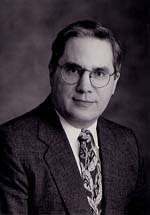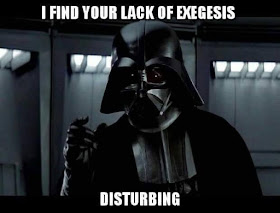 |
| John 8:12 παλιν ουν ο ιησους
αυτοις ελαλησεν λεγων - "εγω ειμι το φως του κοσμου ο ακολουθων εμοι ου μη
περιπατησει εν τη σκοτια αλλ εξει το φως της ζωης" |
Mid-Week Lenten Vespers, 2018
Pastor Gregory L. Jackson
The Hymn #145 - Jesus Refuge of the Weary
The Order of Vespers p. 41
The Order of Vespers p. 41
The Psalmody Psalm 23 p. 128
The Lections The Passion History
The Lections The Passion History
John 8
The Sermon – I AM the Light of the World
The Prayers
The Lord’s Prayer
The Collect for Grace p. 45
The Hymn #660 - Heaven Is My Home
The Hymn #660 - Heaven Is My Home
John 8 -
12 Then spake Jesus again unto them, saying, I am the light of the world: he that followeth me shall not walk in darkness, but shall have the light of life.
13 The Pharisees therefore said unto him, Thou bearest record of thyself; thy record is not true.
14 Jesus answered and said unto them, Though I bear record of myself, yet my record is true: for I know whence I came, and whither I go; but ye cannot tell whence I come, and whither I go.
15 Ye judge after the flesh; I judge no man.
16 And yet if I judge, my judgment is true: for I am not alone, but I and the Father that sent me.
17 It is also written in your law, that the testimony of two men is true.
18 I am one that bear witness of myself, and the Father that sent me beareth witness of me.
 |
| Norma A. Boeckler |
I AM the Light of the World
John 8:12 Then spake Jesus again unto them, saying, I AM the light of the world: he that followeth me shall not walk in darkness, but shall have the light of life.
As I have said before, and recognize more than ever, the Gospel of John is based upon the Torah and fulfills what is promised and foreshadowed in the Five Books of Moses.
We are used to "I am" being used for simple identification, such as "I am an Army veteran" or "I am a teacher." The difference here is that God's Name in Exodus 3 is I AM, and Jesus pointedly used His Name to refute those Jewish leaders who called themselves children of Abraham and ridiculed what He said about the Temple.
The ridicule is edifying, because that is the style all unbelievers use when "refuting" the Faith. They imagine they are clever and funny, but their words betray them, as Jesus revealed to them.
So I consider John 8:58 to be pivotal for the entire Gospel and for what is called Christology. Jesus identified Himself as pre-existent (existing in eternity, before His incarnation). Before Abraham was, I AM.
Nor is Abraham's name a coincidence, because Abraham is the key figure for Justification by Faith in Romans 4, Galatians, James, and Hebrew 11.
Look at the Samaritan woman, in John 4. The Samaritans also had their version of the Five Books of Moses. She confessed faith in the Messiah, the Christ. Jesus said, "I AM, solemnly addressing you now."
Would she have simply heard that as identification, I am He speaking to you now? Or would it be a thunderbolt from heaven to quote Himself from the Burning Bush? I AM! solemnly declaring this truth to you.
Given this basis, we can see what Jesus is teaching - "I AM the Light of the World." That means all truth comes through Christ and is seen in Christ. That is not what the worldly-wise think. They are glad to give Christ a place in their system, more as a philosopher, a man. But they reserve the right to judge Christ and the Christian Faith. They subordinate the Light of the World to their revered inner light.
This is always getting in the way of trust in Christ, because we have to set aside human reason and say, "This is the Truth, and this Truth, the Creating Word, judges all books, all wisdom."
The Gospel of John does this most effectively from the perspective of rhetoric. It is easy to read in any language, including Greek and Latin. Points are clarified and enlarged by repetition. The grammar is easy with no effect to dazzle us with the tools of eloquent. Nevertheless, the Fourth Gospel is the most eloquent and elegant (poetical) of them all.
A true confession of faith in Him does not come from bounty and blessings but waiting, sometimes in a slow agony like the Canaanite woman, and saying -
And should my heart for sorrow break,
My trust in Thee no one could shake.
Thou art the Portion I have sought;
Thy precious blood my soul has bought.
That is from a great hymn that draws together the basics of the Gospel message - Lord, Thee I Love.
Worldly wisdom teaches that following Christ means satisfying our material and social needs. But "I AM the Light" means subordinating our reason to faith in Him. In faith we see that God did not spare the Apostles or His beloved Son. In that time of testing we all face during our lifetimes, we see how that test is completed - and the angels minister to us, too.
 |
| Norma A. Boeckler |
Greek Lesson
John 4
25 λεγει αυτω η γυνη οιδα οτι μεσσιας ερχεται ο λεγομενος χριστος
οταν ελθη εκεινος αναγγελει ημιν παντα
26 λεγει
αυτη ο ιησους εγω ειμι ο λαλων σοι
John 8
12 παλιν ουν ο ιησους
αυτοις ελαλησεν λεγων εγω ειμι το φως του κοσμου ο ακολουθων εμοι ου μη
περιπατησει εν τη σκοτια αλλ εξει το φως της ζωης
18 εγω ειμι ο μαρτυρων
περι εμαυτου και μαρτυρει περι εμου ο πεμψας με πατηρ
24 ειπον ουν υμιν οτι
αποθανεισθε εν ταις αμαρτιαις υμων εαν γαρ μη πιστευσητε οτι εγω ειμι
αποθανεισθε εν ταις αμαρτιαις υμων
28 ειπεν ουν αυτοις ο
ιησους οταν υψωσητε τον υιον του ανθρωπου τοτε γνωσεσθε οτι εγω ειμι και απ
εμαυτου ποιω ουδεν αλλα καθως εδιδαξεν με ο πατηρ μου ταυτα λαλω
58 ειπεν αυτοις ο
ιησους αμην αμην λεγω υμιν πριν αβρααμ γενεσθαι εγω ειμι
 |
| Norma A. Boeckler |























